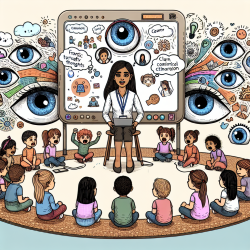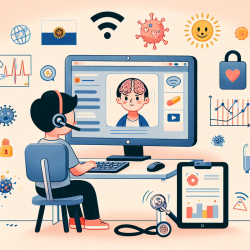As practitioners, our primary goal is to create positive outcomes for children facing social anxiety disorder (SAD). Recent research, specifically the study titled "Experience Versus Report: Where Are Changes Seen After Exposure-Based Cognitive-Behavioral Therapy? A Randomized Controlled Group Treatment of Childhood Social Anxiety Disorder," offers valuable insights into how we can enhance our therapeutic approaches. The study underscores the importance of exposure-based cognitive-behavioral therapy (CBT) and suggests nuanced ways to measure and achieve treatment success.
Key Findings from the Study
The randomized controlled trial involved 67 children aged 9-13, divided into a treatment group receiving CBT and a waitlist control group. The study measured treatment success through various lenses, including social anxiety questionnaires, structured interviews, and the Trier Social Stress Test (TSST). Here are some critical findings:
- Positive Cognitions: Children in the CBT group exhibited a significant increase in positive cognitions during the TSST post-treatment, whereas those in the control group showed a decrease.
- Severity of SAD: A structured interview confirmed a reduction in the severity of SAD in the CBT group, validating the efficacy of the treatment.
- Social Anxiety Reports: Children in the CBT group reported less social anxiety in one of the questionnaires from pre- to post-treatment.
Implementing Research Findings in Practice
Given these findings, here are several actionable steps practitioners can take to improve outcomes for children with SAD:
- Focus on Exposure: The study highlights the importance of exposure in changing cognitions. Practitioners should incorporate more exposure-based activities in their CBT programs to challenge negative expectations and reinforce positive cognitions.
- Use Multiple Measures of Success: Instead of relying solely on self-reported social anxiety symptoms, practitioners should include structured interviews and stress tests to gain a comprehensive understanding of treatment efficacy.
- Group Therapy Benefits: The study supports the effectiveness of group CBT, which provides continuous exposure and peer feedback. Consider incorporating group sessions into your treatment plans.
Encouraging Further Research
While this study provides valuable insights, it also opens the door for further research. Future studies could explore:
- Long-Term Effects: Investigate the long-term efficacy of exposure-based CBT in reducing SAD symptoms and improving social functioning.
- Comparative Studies: Compare the effectiveness of individual versus group CBT to identify the best approach for different subsets of children.
- Physiological Measures: Further research into physiological responses during social stress tasks could offer deeper insights into the mechanisms of SAD and its treatment.
To read the original research paper, please follow this link: Experience Versus Report: Where Are Changes Seen After Exposure-Based Cognitive-Behavioral Therapy? A Randomized Controlled Group Treatment of Childhood Social Anxiety Disorder.










